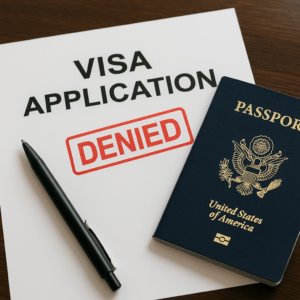The United States Court of Appeals for the Second Circuit lifted an injunction issued by a federal judge allowing the Department of Homeland Security (“DHS”) to resume public charge inadmissibility.
The most recent ruling has been part of intense ongoing litigation since DHS, under the direction of the Trump Administration, started to dramatically expand the definition of “public charge”. Just days before the rule was scheduled to take effect in October 2019, a nationwide preliminary injunction was issued. Earlier this year, the United States Supreme Court upheld the rule allowing it to take effect before the rule was subjected to another preliminary injunction due to the COVID-19 pandemic.
For more information on whether intending immigrants in Asia and their petitioning sponsor can be considered a public charge, contact us today at info@enterlinepartners.com and speak with a U.S. immigration attorney in Ho Chi Minh City, Manila and Taipei.
ENTERLINE & PARTNERS CONSULTING
Ho Chi Minh City, Vietnam Office
Suite 601, 6th Floor, Saigon Tower
29 Le Duan Street
Ben Nghe Ward, District 1
Ho Chi Minh City, Vietnam
Tel: +84 933 301 488
Email: info@enterlinepartners.com
Facebook: Enterline & Partners – Dịch vụ Thị thực và Định cư Hoa Kỳ
Website: http://enterlinepartners.com
ENTERLINE & PARTNERS CONSULTING
Manila, Philippines Office
Unit 2507 Cityland 10 Tower 1
156 H.V. Dela Costa Street
Makati City, Philippines 1209
Tel: +632 5310 1491
Email: info@enterlinepartners.com
Facebook: Enterline and Partners Philippines
Website: https://enterlinepartners.com/language/en/welcome/
Copyright 2020. This article is for information purposes only and does not constitute legal advice. This article may be changed with or without notice. The opinions expressed in this article are those of Enterline and Partners only.








